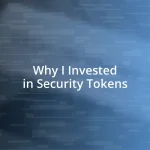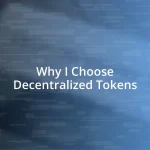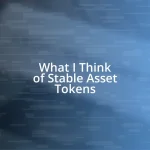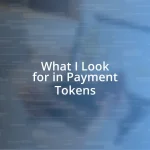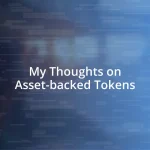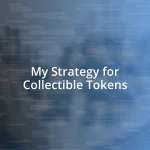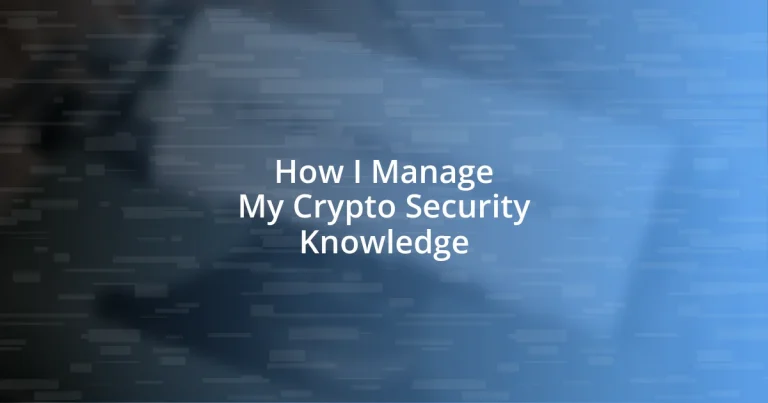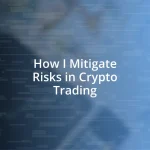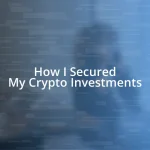Key takeaways:
- The importance of protecting private keys and utilizing cold wallets to enhance security against online threats.
- Regular security audits are essential to identify vulnerabilities and stay ahead of evolving threats in the crypto space.
- Sharing knowledge within the community and staying informed about security practices can significantly enhance individual and collective crypto security.
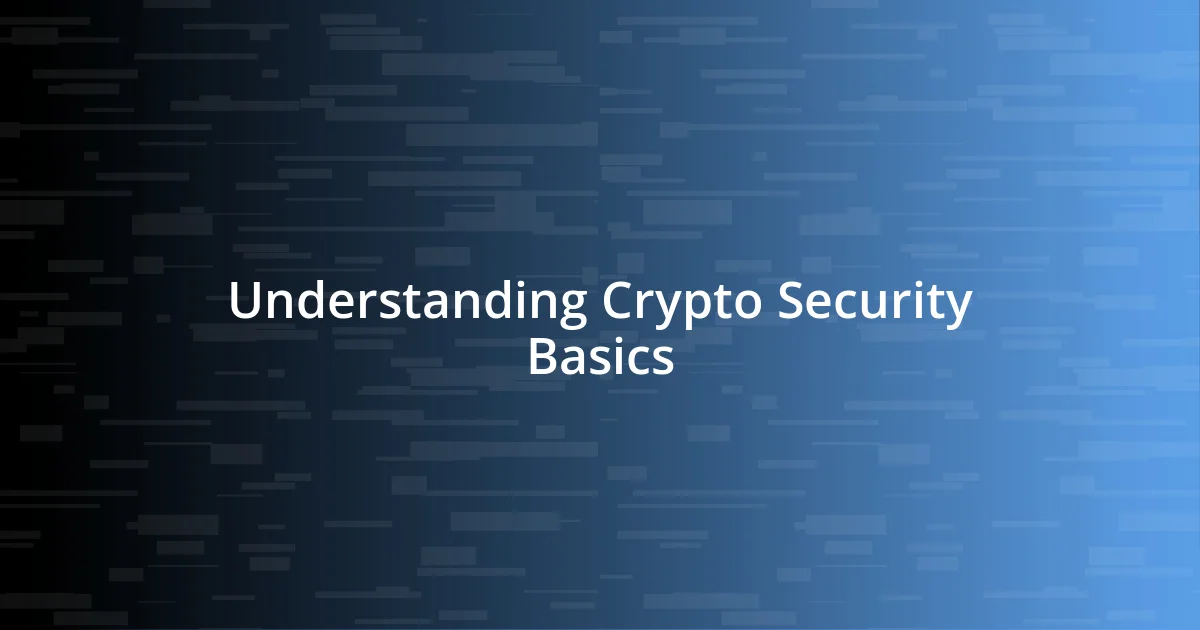
Understanding Crypto Security Basics
Crypto security can feel like a daunting concept at first, but I’ve found that understanding the basics makes it much more manageable. For me, the most crucial aspect is recognizing the importance of private keys. When I first started, I remember the panic of realizing that losing access to my private key would mean losing my assets forever. It’s a sobering thought that highlights just how pivotal these keys are in the crypto world.
Another fundamental concept is the difference between hot and cold wallets. I still recall the early days of my crypto journey, when I stored everything in a hot wallet, thinking it was a convenient option. However, the thrill of easy access quickly turned into anxiety when I learned about the risks of online vulnerabilities. Now, I maintain most of my assets in a cold wallet, which has given me peace of mind. Do you ever think about how much your security choices affect your overall experience in the crypto space?
Moreover, I can’t stress enough the value of using two-factor authentication (2FA). The peace of mind it brings is invaluable. When I added 2FA to my accounts, it felt like I was putting on an extra layer of armor. I often ask myself if that extra step is worth it, especially when I hear about the constant breaches in security. The answer is always a resounding yes! Understanding these basics is not just about protecting your assets, but also about empowering yourself in the ever-evolving world of cryptocurrency.
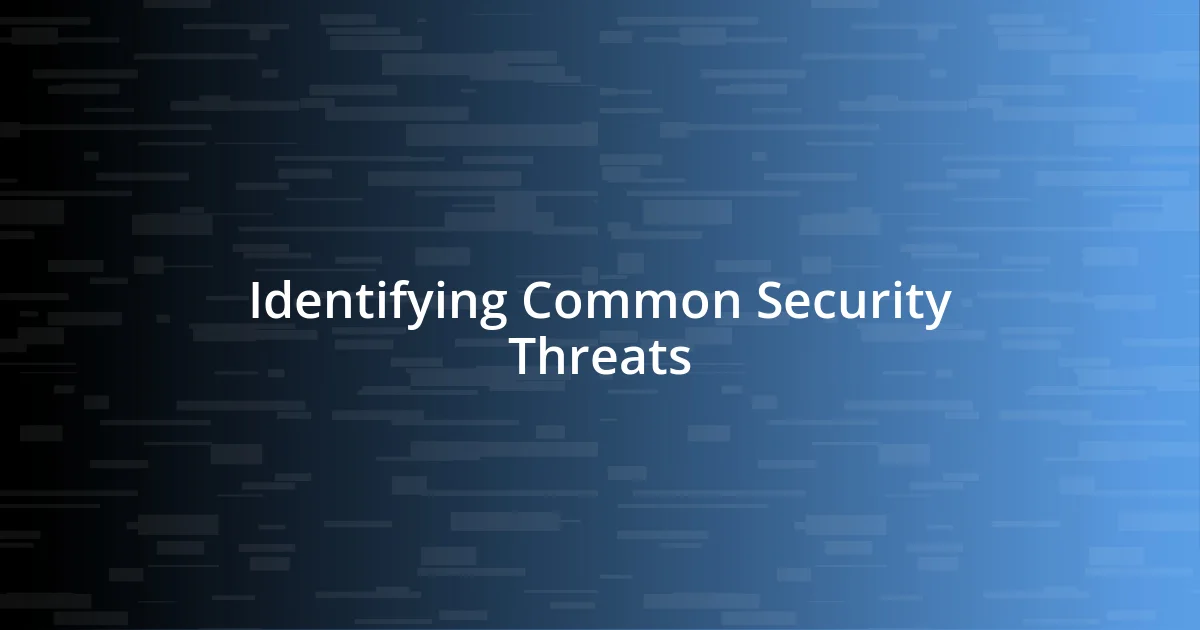
Identifying Common Security Threats
Identifying common security threats is crucial for protecting your crypto assets. I remember the first time I fell victim to a phishing attack. It started with an innocuous-looking email that led me to a fake exchange. The moment I realized something was off, a wave of nausea washed over me. This experience taught me just how easily one can be blindsided by such tactics, and it underlines the importance of staying vigilant.
Here are some common security threats to be wary of:
– Phishing Scams: Deceptive emails or messages designed to steal your private information.
– Malware: Malicious software that can infiltrate your device and compromise your wallets.
– Exchange Hacks: Unscrupulous actors targeting exchanges to steal funds from unsuspecting users.
– SIM Swap Attacks: An attacker tricks your phone carrier into transferring your number to their device, potentially unlocking accounts.
– Weak Passwords: Using easily guessable passwords can make your accounts vulnerable to brute-force attacks.
Recognizing these threats is the first step in building robust defenses and securing your investments. I constantly remind myself to double-check links and verify sources, as it only takes a moment of distraction to invite chaos into my crypto journey.
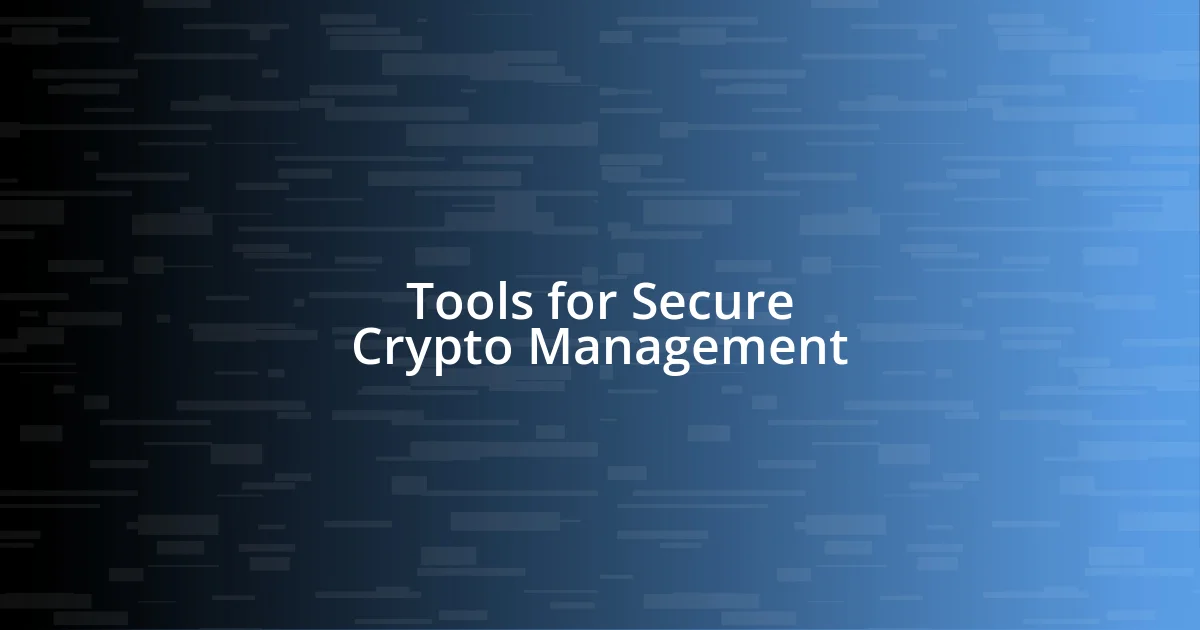
Tools for Secure Crypto Management
Managing crypto security effectively hinges not only on knowledge but also on having the right tools at your disposal. One tool that I swear by is a hardware wallet. It’s like putting my most valuable possessions in a safe that only I can access. The first time I transferred my funds to a hardware wallet, I felt an enormous weight lift off my shoulders. The offline nature of these wallets makes them incredibly secure against online threats, and knowing that my assets are safe gives me peace of mind.
Another essential tool in my arsenal is a password manager. I can’t emphasize enough how this solution has simplified my crypto management. When I first began investing, I struggled to keep track of all my different passwords. It was a recipe for disaster. Since I adopted a password manager, I create unique, complex passwords for all my accounts without the fear of forgetting them. This tool has not only made my life easier but has added an extra layer of protection against unauthorized access.
Finally, I’ve also incorporated secure email services into my crypto management strategy. Regular email providers can be vulnerable to breaches, and I learned this the hard way when a sensitive email linked to my crypto account was compromised. Switching to a more secure email provider made me realize how much control I have over my digital safety. How often do you consider the impact of your communication channels on your overall security? For me, this shift has reinforced the importance of protecting not just my assets, but my whole digital identity.
| Tool | Description |
|---|---|
| Hardware Wallet | Offline storage for crypto assets, enhancing security against online threats. |
| Password Manager | Organizes and secures passwords, ensuring unique and complex passwords for all accounts. |
| Secure Email Services | Offers enhanced protection for email communication, reducing the risk of unauthorized access. |
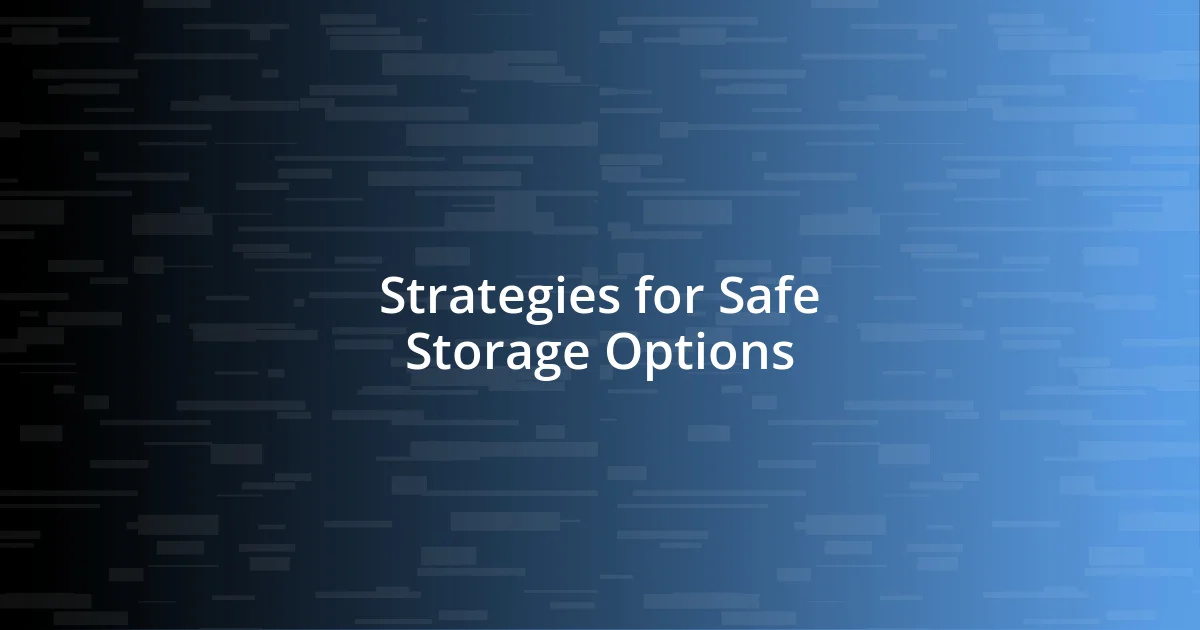
Strategies for Safe Storage Options
When it comes to secure storage options for my crypto, I’ve learned to appreciate the value of both cold and hot wallets. Cold wallets, like hardware wallets, are my go-to for long-term storage. I remember the first time I set up my Ledger. It felt like I was creating a fortress around my assets. The satisfaction of knowing that my cryptocurrencies were completely offline and out of reach from hackers was invigorating. On the other hand, I also utilize hot wallets for everyday transactions, but I make sure to keep those funds minimal. Balance is key, right? How comfortable are you with mixing different types of storage?
Another strategy I’ve adopted is diversifying my storage solutions. Once, I kept all my crypto in one hardware wallet, thinking it was the most secure approach. But a friend pointed out that if something were to happen to that wallet, all my assets would be at risk. That was a lightbulb moment for me. Now, I distribute my holdings across multiple wallets, both hot and cold. This way, even if I face a security breach in one wallet, I won’t lose everything I own. It’s all about minimizing risk. Have you thought about how dividing your assets can offer you peace of mind?
Lastly, I always ensure that I regularly back up my wallets and store those backups securely. I can still recall the panic I felt when I almost lost access to one of my wallets because I forgot my recovery phrase. It was a tough lesson in being prepared. I now keep multiple copies of my recovery phrases in secure places, like a safe deposit box and a trusted friend’s location. This redundancy gives me security I never knew I needed. What would you do if you lost access to your crypto wallet? It’s crucial to be prepared for that very possibility.
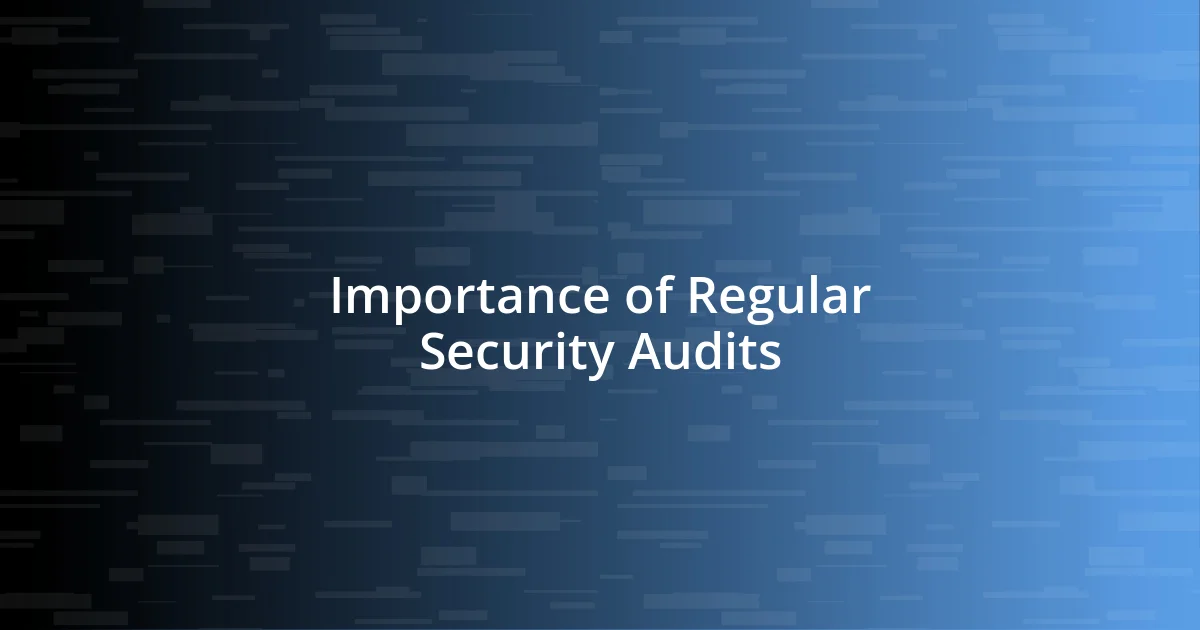
Importance of Regular Security Audits
Understanding the importance of regular security audits in the crypto space has been eye-opening for me. Initially, I viewed security as a one-time setup; I thought that once I had my wallet and password manager in place, I was good to go. However, that perspective changed when I realized that threats evolve constantly, and without regularly checking my security measures, I could easily become a target.
There was a time when I overlooked running security audits. After hearing about a friend’s close call with a phishing attack due to outdated security practices, I decided to reassess my own setup. It struck me that regular audits help identify vulnerabilities I might otherwise miss. Now, I schedule these audits diligently, treating them as essential check-ups for my crypto health. They not only catch potential pitfalls but also give me confidence in the ongoing safety of my assets.
Have you ever felt the unsettling mindset that comes with uncertainty? I did, especially when I noticed unusual activity on my accounts after a big market shift. That incident reinforced my belief that regular audits are more than a precaution—they’re a proactive strategy to stay ahead of threats. Each time I review my security, I walk away feeling a renewed sense of control over my investments, which is crucial in the volatile world of cryptocurrency.
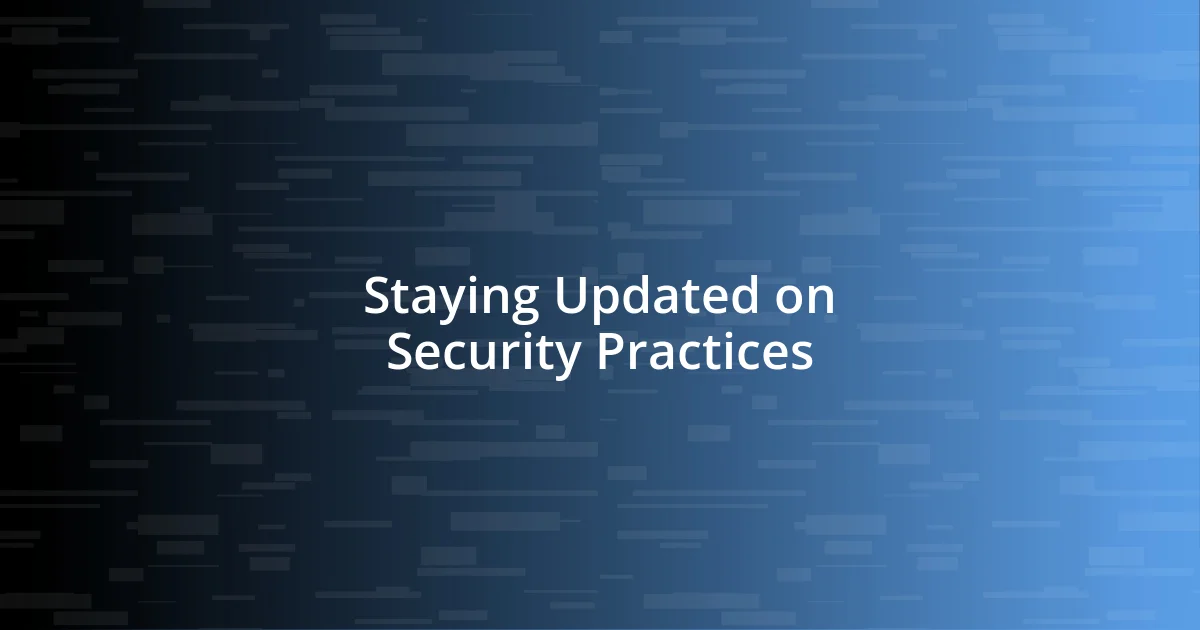
Staying Updated on Security Practices
Staying updated on security practices in the crypto world is a continuous journey. I remember the first time I stumbled upon a well-written article about the latest security threats. My heart raced as I read about phishing scams becoming more sophisticated. It was a wake-up call. Now, I make it a habit to follow reputable crypto news sources and security blogs. How often do you check for the latest updates? I believe staying informed can make a significant difference in protecting my assets.
Regularly participating in online communities has also been a game-changer for me. Engaging in forums or social media groups allows me to learn from others’ experiences and glean insights into emerging security practices. Just last month, a post regarding two-factor authentication (2FA) vulnerabilities made me double-check my own setup. Have you ever thought about the power of community knowledge? It’s fascinating how collective awareness can enhance personal security.
Additionally, I attend webinars and workshops that focus on cryptocurrency security. The interactive format helps me grasp concepts more thoroughly and ask questions in real-time. During one session, I learned about advanced encryption methods, which sparked my interest in enhancing my wallet security. This focused learning keeps my security strategies fresh and effective. What have you done lately to boost your crypto security knowledge? Trust me; taking these small steps can empower you to navigate this complex space confidently.
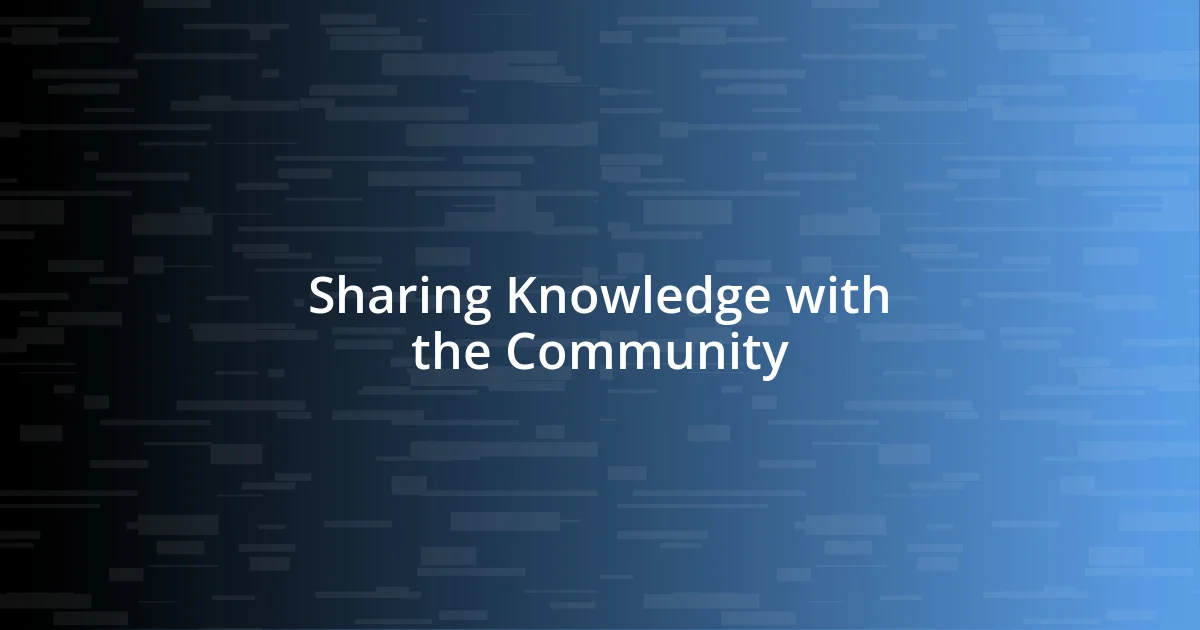
Sharing Knowledge with the Community
There’s something incredibly fulfilling about sharing knowledge with the community. I recall a time when I helped a friend recover from a significant loss due to a security breach. We spent hours reviewing what went wrong, and in that process, I realized how sharing experiences can build a stronger foundation for everyone involved. Have you ever shared a lesson learned the hard way? It might be surprising just how far your insights can go in preventing others from making the same mistakes.
I often participate in local meetups where crypto enthusiasts gather to exchange ideas and strategies. One evening, while discussing the importance of hardware wallets, I was struck by the diverse perspectives in the room. Each person had unique stories of challenges and successes, which reminded me that we’re all on this journey together. How powerful is it to connect with others who understand the nuances of this space? The sense of camaraderie is not just encouraging; it’s also a treasure trove of knowledge that strengthens our collective security.
Additionally, mentoring newcomers has become a rewarding experience for me. When I take the time to explain concepts like private keys or blockchain security, I not only reinforce my understanding but also cultivate a sense of solidarity within the community. What have you done recently to inspire someone else? I find that sharing knowledge isn’t just about informing; it’s about building a network of informed users who can help each other stay safe amid the complexities of the crypto landscape.
